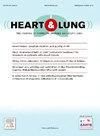膳食抗氧化剂与哮喘之间的关系:从 2003-2018 年 NHANES 调查和孟德尔随机分析中获得的启示。
IF 2.4
4区 医学
Q2 CARDIAC & CARDIOVASCULAR SYSTEMS
引用次数: 0
摘要
背景:许多研究报告称,膳食中的抗氧化剂与哮喘之间存在相关性。然而,膳食中的抗氧化剂与哮喘之间可能存在的关联仍有待讨论:我们探讨了膳食中的抗氧化剂与哮喘之间的关联:我们利用2003-2018年美国国家健康与营养调查(NHANES)的数据来评估膳食来源的抗氧化剂与哮喘之间的关系,并采用双样本孟德尔随机化(MR)研究来评估终身膳食来源的循环抗氧化剂水平与哮喘风险之间的因果关系:结果:哮喘患者多为中青年女性、吸烟者、低收入者、非西班牙裔黑人、高中学历、体重指数超过 30。膳食中维生素 C、锌、硒和 CDAI 的摄入量与哮喘风险呈负相关(维生素 C:OR=0.85,95% CI:0.73-0.98,P=0.004;CDAI:OR=0.80,95% CI:0.65-0.97,P=0.027)。膳食中维生素 C、锌和硒的摄入量与哮喘风险之间存在明显的非线性关系(Pnon-linear < 0.05)。然而,在磁共振分析中没有发现循环抗氧化剂与哮喘风险之间的因果关系。敏感性分析支持了结果的稳健性:在观察性研究中,我们发现膳食中维生素 C、锌、硒和 CDAI 的摄入量与哮喘风险之间存在负相关,而我们的 MR 分析并未发现证据支持膳食中的抗氧化剂与哮喘风险之间存在因果关系。本文章由计算机程序翻译,如有差异,请以英文原文为准。
Association between diet-derived antioxidants and asthma: Insights from the NHANES survey 2003–2018 and Mendelian randomization analysis
Background
Many studies have reported correlations between diet-derived antioxidants and asthma. Nevertheless, the probable association between diet-derived antioxidants and asthma remains a matter of discussion.
Objectives
We explored the association between Diet-Derived Antioxidants and Asthma.
Methods
We used data from the 2003–2018 National Health and Nutrition Examination Survey (NHANES) to assess the relationship between diet-derived antioxidants and asthma and a two-sample Mendelian randomization (MR) study was employed to assess the causal associations between lifelong diet-derived circulating antioxidant levels and the risk of asthma.
Results
Participants with asthma were more likely to be young-to-middle-aged females, smokers, have lower income, belong to non-Hispanic Black ethnicity, have a high school education, have a BMI over 30. The dietary intakes of vitamin C, zinc, selenium, and CDAI were negatively associated with asthma risk (Vitamin C: OR = 0.76, 95 % CI: 0.63–0.91, P = 0.032; Zinc: OR = 0.86, 95 % CI: 0.75–1.00, P = 0.046; Selenium: OR = 0.85, 95 % CI: 0.73–0.98, P = 0.004; CDAI: OR = 0.80, 95 % CI: 0.65–0.97, P = 0.027). There was a significant nonlinear relationship between the dietary intake of vitamin C, zinc, and selenium and the risk of asthma (Pnon-linear < 0.05). However, no causal link between circulating antioxidants and asthma risk was found in the MR analysis. Sensitivity analyses supported the robustness of the results.
Conclusion
In the observational study, we identified a negative correlation between the dietary intake of vitamin C, zinc, selenium, and CDAI and asthma risk, while our MR analyses did not find evidence to support a causal relationship between diet-derived antioxidants and the risk of asthma.
求助全文
通过发布文献求助,成功后即可免费获取论文全文。
去求助
来源期刊

Heart & Lung
医学-呼吸系统
CiteScore
4.60
自引率
3.60%
发文量
184
审稿时长
35 days
期刊介绍:
Heart & Lung: The Journal of Cardiopulmonary and Acute Care, the official publication of The American Association of Heart Failure Nurses, presents original, peer-reviewed articles on techniques, advances, investigations, and observations related to the care of patients with acute and critical illness and patients with chronic cardiac or pulmonary disorders.
The Journal''s acute care articles focus on the care of hospitalized patients, including those in the critical and acute care settings. Because most patients who are hospitalized in acute and critical care settings have chronic conditions, we are also interested in the chronically critically ill, the care of patients with chronic cardiopulmonary disorders, their rehabilitation, and disease prevention. The Journal''s heart failure articles focus on all aspects of the care of patients with this condition. Manuscripts that are relevant to populations across the human lifespan are welcome.
 求助内容:
求助内容: 应助结果提醒方式:
应助结果提醒方式:


